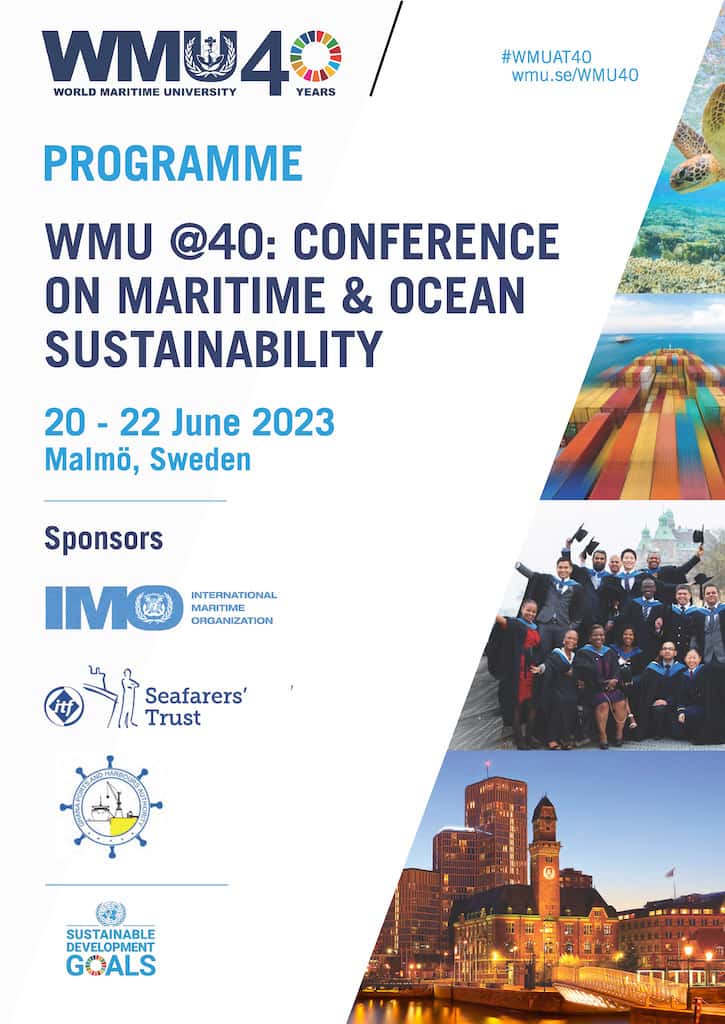CONFERENCE PROGRAMME
For the full conference programme, click here.
Tuesday, 20 June
Malmö Live Conference Center
09:00 - 10:30 Registration & Morning Coffee
09:30- 10:00 ALUMNI ONLY - Meet and greet with H.E. Kitack Lim, Secretary-General, International Maritime Organization
It is recommended that alumni register at the Malmö Live Conference Center before attending the meet and greet.
10:30 - 12:30 Anniversary Celebration
12:30 - 14:00 lunch
14:00 - 15:00 opening session on Maritime & Ocean Sustainability
15:00 - 15:30 coffee break
15:30 - 16:30 panel 1: Transitioning To Zero Emission Shipping
A main objective for the shipping industry is to become emission free by 2050. This requires innovation, investments in new technologies and people, regulation and education. There is still uncertainty how this overall goal can be achieved and what intermediate steps need to be taken. Close collaboration and coordination of all stakeholders concerned is a key factor for success while ensuring that the gap does not widen between the global north and the global south.
17:00 - 19:00 reception
wednesDAY, 21 JUNE
Malmö Live Conference Center
08:00 - 09:00 registration
09:00 - 09:10 Opening Session
09:10 - 09:20 Setting the Scene
09:20 - 10:20 panel 2: Focusing On People To Ensure Healthy, Safe & Secure Working Conditions
10:20 - 10:50 Coffee break
10:50 - 11:50 Panel 3: promoting closer collaboration among stakeholder communities
11:50 - 13:15 Lunch
13:15 - 14:15 Panel 4: rewarding sustainable performance and fostering innovation
14:15 - 14:30 Brief break
14:30 - 15:30 panel 5: creating a level playing field through transparency & accountability
15:30 - 16:00 coffee break
16:00 - 17:00 Panel 6: Protecting the Oceans Beyond National Jurisdiction
17:00 - 17:20 closing remarks
thursday, 22 JUNE - WMU@40: alumni celebration
World Maritime University
Alumni Celebration
A forum for regional and national alumni associations from around the world to showcase their work, and build bridges with others. This will include a poster session with presentations by Cameroon, Chile, Colombia, Ghana, Greece, Japan, Kenya, Liberia, and Nigeria.
08:30 - 09:00 Registration
09:00 - 09:10 Opening remarks
09:10 - 10:00 - Regional Associations
10:30 - 12:00 National Associations
12:00-12:10 Closing Remarks

